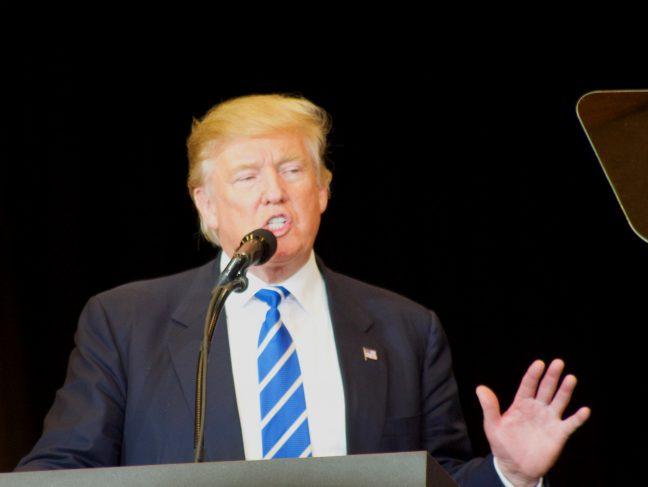It’s not often we see prominent Wisconsin Republicans breaking with their party’s presidential nominee, but they’ve never had a nominee quite like Donald Trump before.
This time the break is not over Trump’s promotion of unwanted sexual advances, but due to his decision not to accept the election results — only if he loses.
Gov. Scott Walker and Sen. Ron Johnson, R-Wis., have both declared they do not agree with Trump’s nonacceptance of election results. Walker goes so far to say he’s “not surprised” and he also said, “The bottom line is whether he does or doesn’t, there’s going to be a new president.”
Paul Ryan avoids mentioning Trump at UW College Republicans event
But these denunciations don’t mean anything until (and if) Speaker of the House Paul Ryan, R-Janesville, breaks with Trump, as he did over Trump’s sexual assault talk.
Really though, the best reason Ryan should break with Trump is so we can all enjoy another episode of Trump’s Twitter tirades. I mean who doesn’t want to see another mess of this:
Paul Ryan should spend more time on balancing the budget, jobs and illegal immigration and not waste his time on fighting Republican nominee
— Donald J. Trump (@realDonaldTrump) October 10, 2016
Our very weak and ineffective leader, Paul Ryan, had a bad conference call where his members went wild at his disloyalty.
— Donald J. Trump (@realDonaldTrump) October 11, 2016
Despite winning the second debate in a landslide (every poll), it is hard to do well when Paul Ryan and others give zero support!
— Donald J. Trump (@realDonaldTrump) October 11, 2016
When Trump’s enormous rage is focused on one person, he transitions from a bigot to the best political side show in America.
Of course, there are more conventional reasons to break from Trump’s unwillingness to trust election results. Trusting the will of the people and the governmental institutions are a good starting point.
Trump’s top supporters and officials, though, have tried to equate his refusal to support election outcomes — if former Secretary of State Hillary Clinton wins — to the challenge former Vice President Al Gore made in 2000.
These two cases, however, are nothing alike.
Gore in no way hinted that his then-upcoming election would be rigged, as Trump has. It was a game time decision based on a razor thin margin in Florida, not a premeditated defense meant to rally one’s base.
While the issue this controversy is creating is nothing like Trump’s sexual assault talk, it might be just as meaningful for Americans’ trust in its government.














